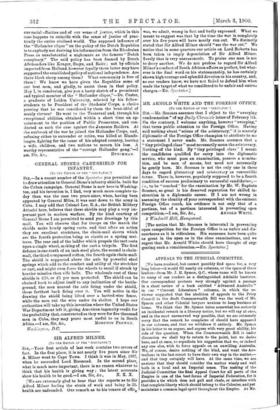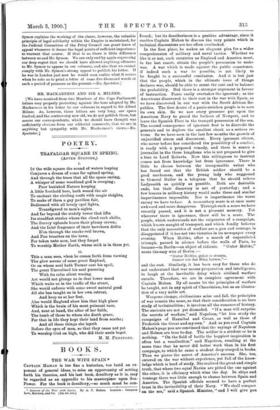APPEALS TO THE JUDICIAL COMMITTEE.
We have received, but cannot possibly find space for, a very long letter—it would fill nearly six columns, or the space of three leaders—from Mr. J. H. Symon, Q.C., whose name will be known to many of our readers as a distinguished Adelaide barrister. Our correspondent protests very strongly against a passage in a short review of a book entitled "Advanced Australia" in (Air " Current Literature " columns, in which the re- viewer suggested that the abolition of appeals to the Privy Council in the draft Commonwealth Bill was the work of Mr. Symon and other Colonial lawyers anxious to keep business at home. We think that Mr. Symon takes somewhat too seriously an incidental remark in a literary notice, but we will say at once, and in the most unreserved way possible, that we are extremely sorry that the remark he complains of should have appeared in our columns, and that we withdraw it entirely. Mr. Symon in his letter to us argues, and argues with very great ability, his side of the question. When the Commonwealth Bill is under discussion we shall try to return to the point, but we desire here, and at once, to repudiate his suggestion that we, or indeed any one else, wish to force appeals on an unwilling Australia. We, of course, desire nothing of the kind, and want the Aus- tralians in the last resort to have their own way in the matter,— and that they certainly will have. At the same time, we are anxious that they should consider the matter wisely and well both in a local and an Imperial sense. The making of the Judicial Committee the final Appeal Court for all parts of the Empire is one of the best forms of Imperial Federation, for it Provides a tie which does not gall and chafe, or interfere with that complete liberty which should belong to the Colonies, and yet maintains a common legal spirit throughout the Empire. As Mr.
Symon explains the working of the clause, however, the valuable principle of legal solidarity within the Empire is maintained, for the Judicial Committee of the Privy Council can grant leave of appeal whenever it deems the legal points of sufficient importance to warrant that course. If that is so, there is little difference between us and Mr. Symon. We can only end by again expressing our deep regret that we should have allowed anything offensive to Mr. Symon to appear in our columns, and also that we cannot comply with Mr. Symon's strong appeal to publish his letter. If he was in London just now he would soon realise what it means when he asks us to print a letter of some five thousand words at such a period of pressure as the present.—En. Spectator.]







































 Previous page
Previous page